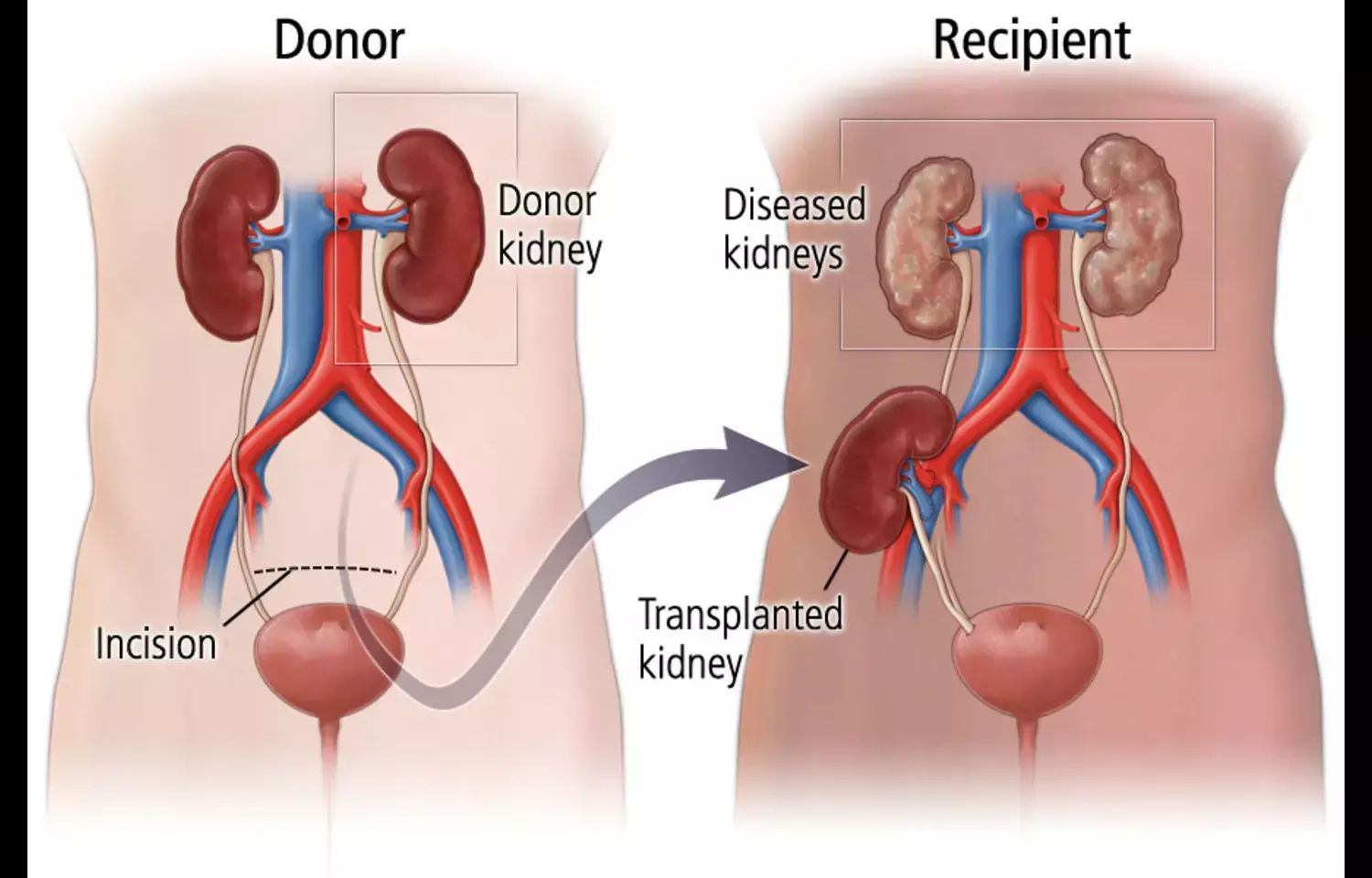- Home
- Medical news & Guidelines
- Anesthesiology
- Cardiology and CTVS
- Critical Care
- Dentistry
- Dermatology
- Diabetes and Endocrinology
- ENT
- Gastroenterology
- Medicine
- Nephrology
- Neurology
- Obstretics-Gynaecology
- Oncology
- Ophthalmology
- Orthopaedics
- Pediatrics-Neonatology
- Psychiatry
- Pulmonology
- Radiology
- Surgery
- Urology
- Laboratory Medicine
- Diet
- Nursing
- Paramedical
- Physiotherapy
- Health news
- Fact Check
- Bone Health Fact Check
- Brain Health Fact Check
- Cancer Related Fact Check
- Child Care Fact Check
- Dental and oral health fact check
- Diabetes and metabolic health fact check
- Diet and Nutrition Fact Check
- Eye and ENT Care Fact Check
- Fitness fact check
- Gut health fact check
- Heart health fact check
- Kidney health fact check
- Medical education fact check
- Men's health fact check
- Respiratory fact check
- Skin and hair care fact check
- Vaccine and Immunization fact check
- Women's health fact check
- AYUSH
- State News
- Andaman and Nicobar Islands
- Andhra Pradesh
- Arunachal Pradesh
- Assam
- Bihar
- Chandigarh
- Chattisgarh
- Dadra and Nagar Haveli
- Daman and Diu
- Delhi
- Goa
- Gujarat
- Haryana
- Himachal Pradesh
- Jammu & Kashmir
- Jharkhand
- Karnataka
- Kerala
- Ladakh
- Lakshadweep
- Madhya Pradesh
- Maharashtra
- Manipur
- Meghalaya
- Mizoram
- Nagaland
- Odisha
- Puducherry
- Punjab
- Rajasthan
- Sikkim
- Tamil Nadu
- Telangana
- Tripura
- Uttar Pradesh
- Uttrakhand
- West Bengal
- Medical Education
- Industry
Steroidal MRAs Ineffective and Risky in Kidney Transplant Recipients: Study

Researchers have found in a new study steroidal mineralocorticoid receptor antagonists (MRAs) show no superior efficacy over placebo in kidney transplant recipients and are linked to a fourfold increased risk of hyperkalemia, even with preserved kidney function.
In patients with chronic kidney disease, mineralocorticoid receptor antagonists (MRAs) exert a reno-protective effect through its anti-inflammatory and antifibrotic effects. Less is known about the efficacy of MRAs in kidney transplant (KT) recipients.
This meta-analysis aims to systematically assess the efficacy of MRAs in KT recipients. PubMed, Embase and Cochrane databases were searched for randomized controlled trials (RCTs) that compared MRAs to placebo in KT recipients and reported the outcomes of (1) glomerular filtration rate (GFR); (2) serum creatinine; (3) systolic (SBP) and diastolic blood pressure (DBP); (4) hyperkalemia; and (5) interstitial fibrosis and tubular atrophy (IFTA) scores.
Heterogeneity was examined with I2 statistics. A random-effects model was used for outcomes with high heterogeneity.
Results: They included 5 RCTs with 293 patients, of whom 142 (48.5%) underwent treatment with a steroidal MRA. Mean follow-up ranged from 5 days to 36 months. There was no significant difference in GFR (MD 9.04 mL/min/1.73 m2; 95% CI − 2.76–20.85; p = 0.13) and serum creatinine between placebo and MRA groups (MD − 0.21 mg/dL; 95% CI − 0.62–0.20; p = 0.32). SBP (MD 0.69 mmHg; 95% CI − 0.69–2.08; p = 0.33), DBP (MD 0.45 mmHg; 95% CI − 0.69–1.59; p = 0.44) and IFTA scores exhibited no differences between groups (mild IFTA RR 1.21; 95% 0.83–1.74; p = 0.32) (moderate IFTA RR 0.82; 95% CI 0.45–1.50; P = 0.51) (severe IFTA RR 0.64; 95% CI 0.24–1.76; p = 0.39). MRAs were associated with a 4-fold increase in the risk of hyperkalemia compared with placebo (RR 4.06; 95% CI 1.46–11.28; p = 0.007). Steroidal MRAs have no superior efficacy compared with placebo in KT recipients and are associated with a 4-fold increase in the risk of hyperkalemia despite preserved kidney function.
Reference:
BMC Nephrology. (2025). Steroidal mineralocorticoid receptor antagonists ineffective and risky in kidney transplant recipients: Study. BMC Nephrology. https://bmcnephrol.biomedcentral.com/articles/10.1186/s12882-025-043XX-X [API]
Dr. Shravani Dali has completed her BDS from Pravara institute of medical sciences, loni. Following which she extensively worked in the healthcare sector for 2+ years. She has been actively involved in writing blogs in field of health and wellness. Currently she is pursuing her Masters of public health-health administration from Tata institute of social sciences. She can be contacted at editorial@medicaldialogues.in.


